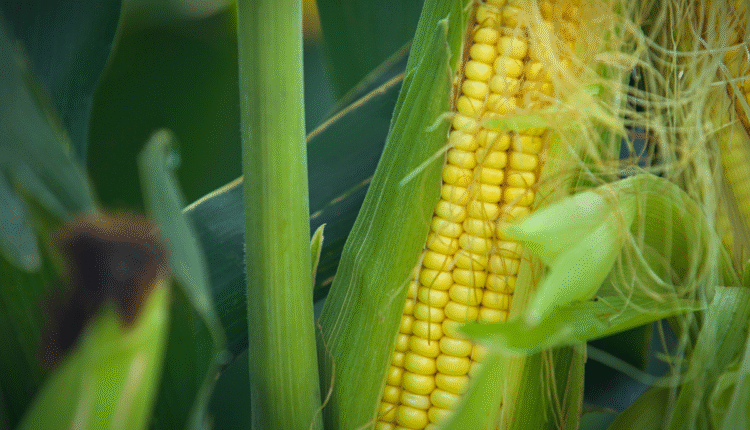Crop Psychology: Do Plants Think? For generations, farmers have spoken to their crops, sung to their saplings, and observed plant behaviour closely. While once considered folklore, modern science is now catching up to these age-old traditions. A new field called plant cognition or crop psychology is emerging, which studies how plants perceive, process, and respond to the world around them.
In the context of Indian agriculture — facing climate stress, pest resistance, and soil fatigue — this research could hold game-changing potential. Understanding how plants “think,” communicate, and adapt can help us create smarter farming systems and higher-yield strategies.
India’s farming practices have traditionally included a deep respect for natural rhythms, often guided by intuition and close observation. Now, plant cognition bridges the gap between traditional wisdom and scientific insight. By validating what farmers have long known through modern research, it offers a fresh yet familiar approach to sustainable agriculture. With increasing pressure on land, water, and ecological balance, it is time to reimagine farming as a conversation between farmer and plant. Crop psychology invites us into this dialogue and helps us become listeners as much as cultivators.
What Is Plant Cognition?
Plant cognition refers to the ability of plants to sense, process information, make decisions, and adapt behaviourally without having brains or nervous systems. It includes phenomena like:
- Responding to light, gravity, and moisture
- Sending signals through roots and leaves
- Learning from past experiences (habituation)
- Communicating chemically with other plants
- Forming beneficial alliances with microbes and fungi
Plants, in this sense, behave more like slow-moving, silent decision-makers than passive life forms.
Unlike animals, plants respond gradually, often taking hours or days to react. Yet their responses are precise and purposeful. For example, sunflowers track the sun across the sky not just for light, but also to maximize energy intake, regulate temperature, and enhance reproductive success. Similarly, many climbing plants show preference in the direction of their growth based on structural support, an ability that mimics decision-making. Recognizing these subtle yet intelligent actions invites us to manage crops not as static entities but as responsive partners in the field.
Key Discoveries in Plant Psychology
- Root Intelligence: Roots can detect moisture gradients, nutrients, and even threats like compacted soil. They grow strategically to avoid competition and optimize survival. In trials, maize plants have shown that their roots can grow away from harmful soil zones and even reroute growth around obstacles like stones or pollutants.
- Chemical Conversations: Plants emit volatile organic compounds (VOCs) when under attack (like from aphids or caterpillars). Neighbouring plants receive the signal and pre-activate their defenses. In mustard plants, such communication has reduced the impact of pests in field trials.
- Light Memory: Plants can remember the duration and quality of light they receive and adjust their growth accordingly — a key concept in precision horticulture and polyhouse farming. This insight can help schedule artificial lighting in greenhouses for maximum yield.
- Habituation: Experiments show that Mimosa pudica (the touch-me-not plant) stops closing its leaves if repeatedly touched with no harm, indicating memory and learning. This shows that plants save energy by not responding to harmless stimuli, a survival tactic.
- Mycorrhizal Networks (Wood Wide Web): Through fungal networks, plants can share nutrients and warning signals. Some call this underground communication system the “Internet of Plants.” Forest trees have been observed to pass carbon and nitrogen to saplings through these networks, aiding in community resilience.
These findings are not only fascinating but also hold the potential to revolutionize how we treat, manage, and nurture our crops.
Applying Crop Psychology in Indian Agriculture
India’s diverse agricultural landscape — from Punjab’s wheat belt to Kerala’s spice plantations — offers many opportunities to integrate plant behaviour insights into real-world practices.
A. Optimizing Irrigation Through Root Behaviour
Understanding root signaling can help design moisture-sensitive irrigation systems that mimic natural water-seeking patterns. This saves water in drought-prone areas like Bundelkhand and Marathwada.
By using data from root depth studies and moisture sensor feedback, farmers can time irrigation more accurately, avoiding both overwatering and water stress. Additionally, incorporating root-friendly soil conditioners like vermicompost can enhance the roots’ natural ability to seek and store water, creating a more resilient crop in water-scarce regions.
B. Pest Management Using Chemical Signals
Instead of spraying broad-spectrum pesticides, farmers can use companion plants or synthetic versions of plant VOCs to trigger pest defenses early.
Intercropping marigold with brinjal or using basil near tomato plants can reduce pest attacks naturally. Researchers are also exploring the use of VOC sprays that mimic a plant’s chemical alarm system, providing a pre-emptive shield to nearby crops without harming beneficial insects.
C. Plant-Microbe Communication for Soil Health
Plant roots selectively attract beneficial microbes and mycorrhizae. By understanding this, we can introduce soil conditioners and microbial consortia that enhance natural plant partnerships.
Microbes like Rhizobium, Azospirillum, and phosphate-solubilizing bacteria can be applied strategically to sync with the crop’s signaling rhythm. This enhances nutrient uptake, strengthens plant immunity, and reduces dependency on chemical fertilizers, especially in organic and integrated farming systems.
D. Climate Adaptation Through Memory and Learning
Plants remember stress. Crops exposed to mild drought early in life can become more resilient later. This insight can be used in stress-training crops to survive erratic weather patterns.
A planned regimen of early-life drought or temperature exposure can activate stress response genes in crops like wheat, bajra, and tomatoes. This technique, combined with adjusted sowing calendars, can help reduce crop loss due to sudden heatwaves or unseasonal rains.
E. Crop Selection Based on Behavioural Traits
Modern plant breeding can include not just yield and disease resistance but also behavioural traits like resilience, stress memory, and cooperative growth.
Such traits can be critical in multi-cropping systems where harmony among plant species matters. Selecting varieties that signal and share resources well can result in better overall field performance, especially in organic or natural farming where minimal external input is available.
Real-World Research and Innovations
1. Indian Institute of Science (IISc), Bengaluru
Studies on plant root architecture and signaling patterns under climate stress.
Their work includes analyzing how roots of drought-resistant and drought-sensitive crops behave under similar stress conditions, offering clues for developing next-generation varieties.
2. ICAR and IARI Projects
- Integrating plant-microbe interaction research into crop trials.
- Studying behavioural responses of pulses and millets under semi-arid conditions.
ICAR researchers are also documenting traditional crop wisdom from tribal and rural communities to merge with laboratory insights, creating region-specific behavioural protocols for farmers.
3. Agri-Tech Startups
- Companies like Fasal and CropIn use AI to interpret crop signals from satellites and sensors, aiding decision-making in real-time.
These platforms provide mobile apps to farmers, offering suggestions based on plant stress indicators, microclimate behaviour, and even growth patterns observed via drone imaging.
4. Community Innovation
- Tribal farmers in Odisha and Jharkhand practice “crop whispering” — selecting seeds based on visual and tactile observations of plant behaviour, unknowingly applying plant cognition.
They consider leaf texture, flexibility, and seedling tilt as indicators of plant intelligence, often choosing varieties that show quicker adaptation to their specific soil and climate.
Top 5 Benefits of Crop Psychology in Agriculture
1. Low-Cost Innovation
Utilizes natural plant behavior and observation, reducing reliance on expensive fertilizers and pesticides.
2. Eco-Friendly Farming
Promotes natural pest control and healthy soil ecosystems, lowering environmental impact.
3. Climate Resilience
Encourages cultivation of crops better adapted to climate stress, erratic rainfall, and poor soils.
4. Farmer Empowerment
Strengthens the farmer’s role as an observer and decision-maker, reviving traditional wisdom and local practices.
5. Self-Sufficiency and Sustainability
Encourages reliance on biological processes over external inputs, making farming more sustainable and cost-effective in the long run.
Top 5 Challenges in Adopting Crop Psychology
1. Lack of Scientific Awareness
Many farmers are unfamiliar with the science behind plant cognition and need visual demonstrations and training.
2. Limited Research Application
Much of the plant behaviour research is still in labs or early pilot stages, not yet available for widespread on-field use.
3. Technology Access and Digital Literacy
AI-based tools that decode plant signals require smartphones, apps, and training that may not be available in all rural areas.
4. Scalability Issues
Translating small-scale experiments into large-scale farming practices needs structured support and infrastructure.
5. Skepticism and Cultural Barriers
New scientific explanations of plant behaviour may be met with doubt or confusion unless presented through trusted local channels or formats.
The Future of Crop Psychology in India
- Farmer Field Schools should incorporate basic training on plant behaviour observation.
- Government Schemes can promote behavioural trait-based seed selection.
- CSR and NGO Projects can conduct awareness drives in vernacular languages.
- Curriculum Changes in agricultural universities to include plant behaviour science.
- Startup Funding for tools that use AI to decode plant stress signals.
India, with its rich tradition of nature-based farming and growing interest in technology, is well-placed to become a global leader in applied crop psychology.
Pilot projects in Telangana and Maharashtra have already started experimenting with behavioural trait tracking in pulses and horticultural crops. Collaborations with rural self-help groups and agri-clinics are proving successful in spreading awareness about plant response-based farming, especially among women farmers.
Listening to the Plants
We’ve spent centuries trying to control crops. But what if we started listening to them instead? Plant cognition is not just science fiction. It is a growing field of knowledge with real potential to make agriculture smarter, cheaper, and more sustainable.
As we move into an era of climate uncertainty and rising input costs, knowing how plants behave, communicate, and adapt will be one of the most powerful tools in a farmer’s hands. After all, the best innovations often come not from controlling nature — but from understanding it.
Plant behaviour research honours the age-old bond between the farmer and the field. It tells us that observation, patience, and curiosity are not just virtues but agricultural tools. By nurturing a deeper relationship with plants, farmers can unlock new potential in old lands. The future of farming may not lie in machines alone, but in the whispers of the crops themselves.
By tuning into the psychology of crops, Indian farmers can tap into the wisdom of nature itself — and cultivate not just higher yields, but a deeper harmony with the land they love.
Contact details: If farmers want to share information or experiences related to farming with us, then they can do this by calling us on the phone number 9599273766 or by writing an email to [email protected] or by sending your recording. Through Kisan of India, we will convey your message to the people, because we believe that if the farmers are advanced then the country is happy.



